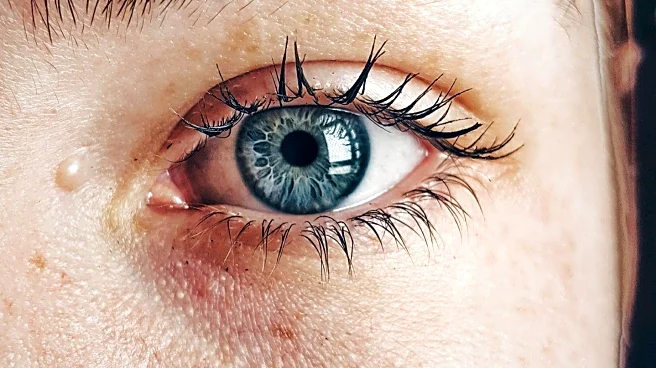What's Happening?
The trend of young adults undergoing cosmetic surgery, particularly facelifts, is increasing, with individuals in their late 20s and 30s opting for procedures traditionally associated with older demographics. This shift is partly attributed to societal pressures and the influence of social media, where celebrities openly discuss their cosmetic surgeries. The British Association of Aesthetic Plastic Surgeons reports an 8% increase in facelifts, with a notable demographic shift. Techniques have evolved, reducing risks like the 'wind tunnel' effect, making facelifts more appealing. However, experts caution that these procedures should be performed by registered specialists due to potential complications such as hematomas and infections.
Why It's Important?
The rise in cosmetic surgeries among younger individuals highlights significant societal pressures related to appearance and self-esteem. The normalization of these procedures, fueled by celebrity endorsements and social media, may lead to increased demand and potential health risks. This trend could impact the cosmetic surgery industry, driving innovation in techniques and accessibility. However, it also raises ethical concerns about the influence of unrealistic beauty standards and the psychological effects on young adults. The industry must balance innovation with responsible practices to ensure patient safety and address the underlying societal issues contributing to this trend.
What's Next?
As cosmetic surgery becomes more common among younger demographics, the industry may see further advancements in techniques and accessibility. Regulatory bodies might implement stricter guidelines to ensure patient safety and ethical practices. Public health campaigns could emerge to address the psychological impact of societal beauty standards and promote self-acceptance. Additionally, there may be increased scrutiny on the role of social media and celebrity influence in shaping perceptions of beauty and self-worth. Stakeholders, including healthcare professionals and policymakers, will need to navigate these developments to protect consumer interests and promote healthy societal norms.
Beyond the Headlines
The growing trend of cosmetic surgery among young adults could lead to long-term shifts in societal attitudes towards beauty and self-image. As procedures become more normalized, there may be increased pressure on individuals to conform to certain aesthetic standards, potentially exacerbating issues related to body dysmorphia and mental health. The ethical implications of promoting cosmetic surgery as a solution to self-esteem issues must be considered, with a focus on fostering a culture of acceptance and diversity. This development also highlights the need for comprehensive education on the risks and realities of cosmetic procedures.








